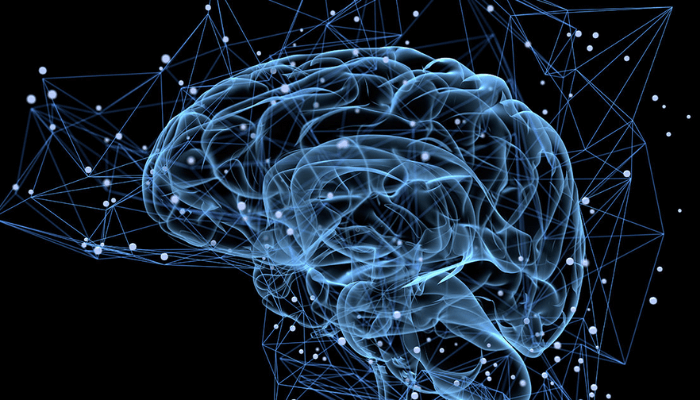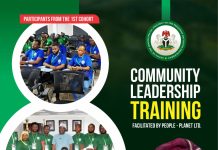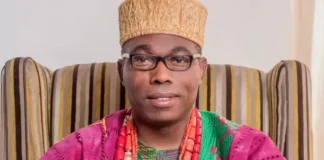🌿 Ruzu Non-Alcoholic Herbal Bitters
Ruzu Non-Alcoholic Herbal Bitters is a natural health supplement specially formulated to:
- ✅ Promote general wellness
- ✅ Detoxify the body
- ✅ Support the treatment of various ailments
Made from a powerful blend of 100% organic and medicinal herbs, Ruzu is completely alcohol-free, making it ideal for:
- 👪 All age groups
- 🌱 Health-conscious individuals
- 🌿 Anyone seeking non-alcoholic herbal remedies
Whether you're looking to boost your vitality, cleanse your system, or support healing the natural way, Ruzu Bitters offers a trusted herbal solution.
By Olayinka Opaleye
Although most people can change the world through their thoughts, the world is still grappling with many issues today because we have rendered that capacity redundant, dormant, or probably underdeveloped. Unfortunately, this has hindered many from becoming what or who they ought to be. How regretful can it be to realise that you are responsible for your lack of growth, development, or advancement simply because you refuse to think critically?
The past few weeks have been about cognitive health and how business leaders can appeal to a specific part of the human brain when promoting their businesses. In this article and the next, I will share the importance of critical thinking and the strategies for deep thinking.
Read also: Losing our best hands: Reversing Nigeria brain drain
Isn’t it amazing how we could be physically engaged and still have racing thoughts going through our minds while at it? The worst thing we can allow is not to back our great thoughts, also known as ideas, with actions as much as we can. Living in the now requires us to be mindful, and being mindful helps us to notice and appreciate some moments we find ourselves in. You can, therefore, imagine how productive each day at work can be if we deliberately perform critical thinking.
Critical thinking is the ability to stir up thoughts on a deeper level through questioning, analysing, evaluating, and generating information to solve a problem, make a good decision, or make predictions. This art of thinking entails pulling away from a situation to have enough time to focus and perform an in-depth assessment from all angles. Such exercises involve:
Identifying salient points.
Assessing the source of information.
Evaluating its relevance.
Processing the evidence before deciding what is correct, appropriate, effective, and acceptable.
Moreover, critical thinking is not about being critical of anyone but subjecting claims and issues to scrutiny. Even though deep thinking is not enough to give you an edge, it is one of the surest ways to be reflective, adaptable, and creative. It helps you make informed decisions, stand up for yourself, and feel more confident. Here are a few techniques for becoming a better and clearer thinker:.
Identify your stage:
There are about six stages of critical thinking development. Knowing your current stage, accepting it, and desiring a change or improvement are the steps in the right direction for becoming an insightful thinker. Adopting necessary strategies after that can help an unreflective thinker become a master, where having great thoughts becomes second nature.
Use idle time:
We all have idle time that often goes to waste if we are not deliberate about using it. This idle time is usually spent in traffic, gossiping, watching TV before bed, worrying about the future, or regretting the past. Whenever these time-wasting opportunities arise, deliberately switch gears to having some productive thinking done. Think about your day by evaluating your highs and lows and what you can do differently to improve the next one.
“Critical thinking is the ability to stir up thoughts on a deeper level through questioning, analysing, evaluating, and generating information to solve a problem, make a good decision, or make predictions.”
Find a problem:
Cultivate the habit of choosing a problem to work on daily. Issues abound; as I once wrote, problems are the new gold. I would recommend identifying a problem that may hinder your growth as a beginner. For example, if you constantly struggle to complete assigned tasks promptly without negative feedback, Carefully analyse the last of such scenarios and identify the root causes, such as procrastination, heavy workload, anxiety, cluelessness, or lack of resources. Then, evaluate each problem, recognising the limitations within your control and those outside of it. Adopt strategies to solve all the issues and ensure you follow through with them.
Read also: Its high time to use my nine degrees, brain to help develop Ondo — Jimoh Ibrahim
Imbibe intellectual standards:
Accuracy, clarity, depth, logic, precision, relevance, and significance are some of the universal intellectual standards out there. Pick one and focus on it for about a week. For example, if you pick accuracy for this week, check your work or words for mistakes and shortcomings as much as possible. When having discussions or making posts, be sure not to spread falsehoods; it’s better not to contribute than to stop short of the truth. This consciousness will encourage you to research more, fact-check information, engage in conversations wisely, and earn the respect of your peers, colleagues, bosses, and readers.
Be in touch:
Getting in touch with your emotions puts you on top of things, especially when it’s most required. Your ability to manage your feelings significantly impacts having a clear head to reason and act appropriately. Here, I would recommend an exercise by Byron Katie called The Work. The exercise helps you question how genuine the emotion you are currently feeling is. It enables you to identify the negative emotion, what triggered it, why it was triggered, and if it was true. Furthermore, it would put you in the position of the individual labelled as the perpetrator, so you could critically investigate the chances that the negative emotion may be baseless.
Call To Action:
Watch out for the concluding part of this article next week. If you are interested in taking The Work exercise to get the root of some negative emotions, kindly send an email to [email protected]
Olayinka Opaleye is a Wellbeing Specialist and Corporate Wellness Strategist. She writes from Lagos. Tel: 09091131150 or follow her on www.linkedin.com/in/olayinkaopaleye


















